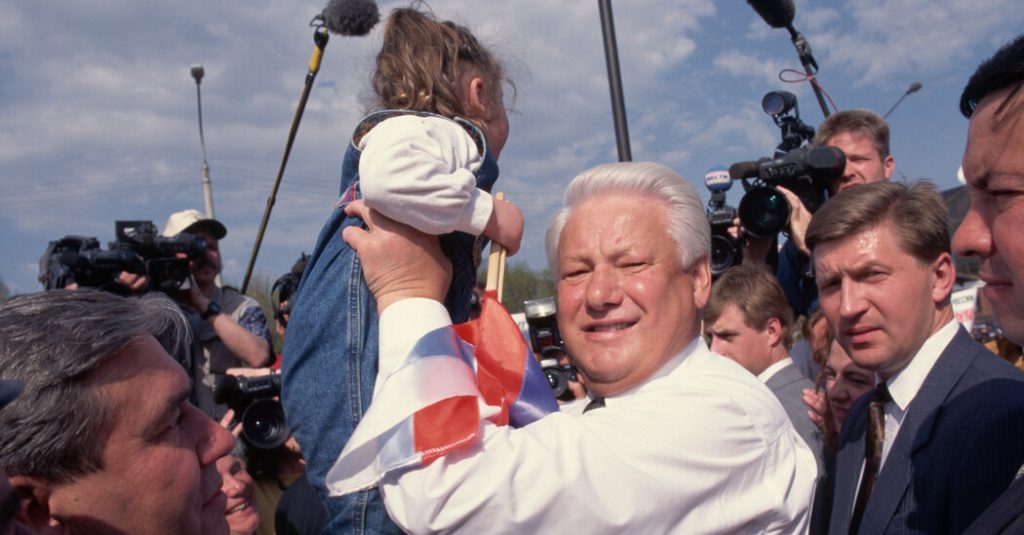The content discusses the 1996 Russian presidential election, drawing parallels with the current American presidential campaign. Boris Yeltsin, the elderly incumbent president of Russia, faced low approval ratings and health concerns but was convinced by his advisers to run for a second term. His opponent was the Communist leader Gennady Zyuganov, heralding a choice between democracy and tyranny. Yeltsin’s campaign was characterized by fear-mongering tactics and media manipulation to paint a grim picture of a Communist victory, leading to his narrow re-election.
Despite his health issues, Yeltsin’s victory in the 1996 election paved the way for Vladimir Putin to eventually rise to power. The tactics employed by Yeltsin’s campaign team, including hiding the severity of his health problems and using state funds for the campaign, undermined public trust in the democratic process. The lack of transparency in the campaign, alongside Yeltsin’s diminished ability to govern, created a power vacuum that was ultimately filled by Putin.
The aftermath of the 1996 Russian election highlighted the dangers of using fear-based strategies to win elections and the long-term consequences of eroding public trust in democratic institutions. The comparison with the current American presidential campaign serves as a cautionary tale, emphasizing the importance of offering voters more than just protection from a perceived worse alternative. The formula of fear may lead to short-term electoral success but can damage the foundations of democracy in the long run.
While some Russian officials involved in the 1996 election believe their actions were justified in preserving democracy, others, like Alexei Navalny, express disdain for those who squandered Russia’s democratic prospects in the ’90s. The narrative underscores the complex nature of democratic elections and the need for a more nuanced approach that goes beyond mere anti-establishment sentiments. As the current discourse in America emphasizes the critical importance of the upcoming election, lessons from Russia’s experience serve as a reminder that safeguarding democracy requires more than just defeating a perceived threat.
The story of Boris Yeltsin’s 1996 re-election campaign serves as a stark reminder of the risks of relying solely on fear-based tactics to secure electoral victory. The erosion of public trust and the rise of authoritarianism that followed in Russia demonstrate the lasting impact of undermining democratic principles. By recognizing the limitations of a solely anti-establishment narrative and focusing on building trust in democratic institutions, countries like the United States can avoid the pitfalls that befell Russia in the aftermath of the 1996 election.


